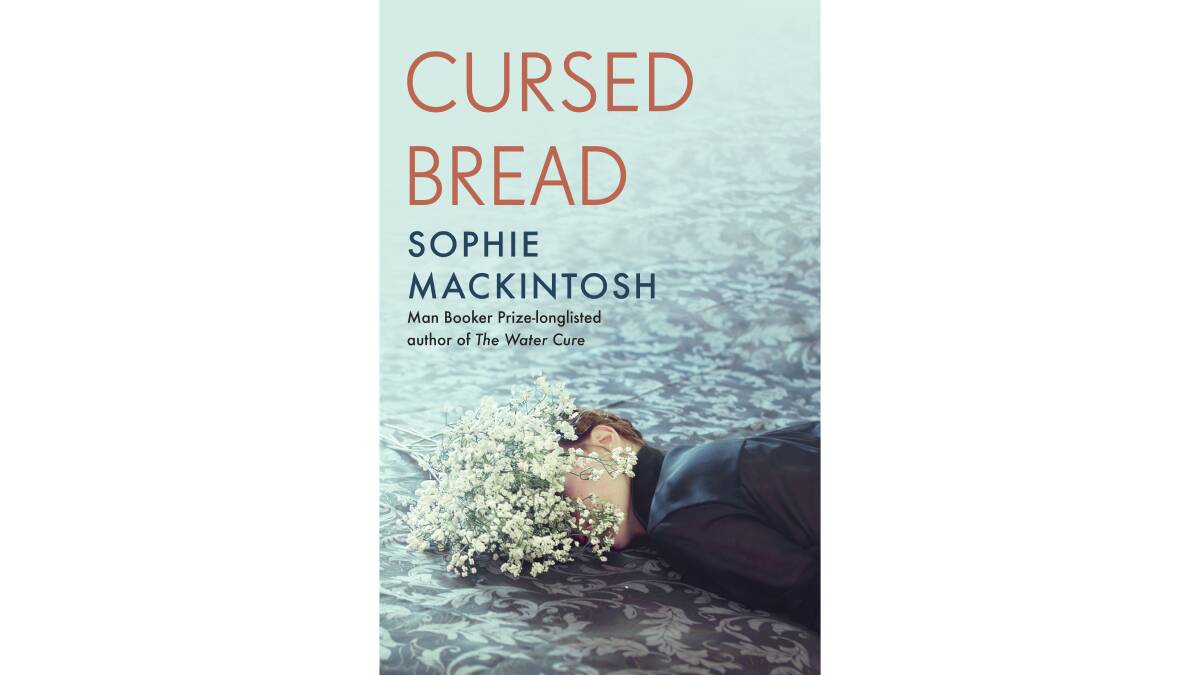- Cursed Bread, by Sophie Mackintosh. Hamish Hamilton, $32.99.
Cursed Bread is set in early 1950s France, where people are beginning to return to a normal life after surviving the Second World War.
Subscribe now for unlimited access.
or signup to continue reading
Into a small town arrive two glamorous strangers, and the novel focuses on Elodie, the baker's wife, and her obsession with this couple.
Mackintosh tells the story in two streams; before a disaster that strikes the town, and in a series of letters written by Elodie later in time, from a seaside village. The novel is remarkable in the way it presents Elodie's need to capture every aspect of the lives of Violet and her husband.

No detail is too small as Elodie tries to create an archive of their movements, their conversations, their love life, their clothes.
Elodie nibbles on a slice of apple that Violet has taken a bite from. She lurks outside a door to overhear the couple's words, even wears the woman's garments.
The novel is quite short, under 200 pages, yet it demands careful and considered reading. It is at once beautiful, told in memorable prose, and profoundly unsettling.
We are not provided a clear division between fact and memory, fantasy and reality. The very existence of major characters is called into question late in the work.
The novel is based around the mass poisoning that occurred in the town of Pont-Saint-Esprit in 1951. A short note at the end of the novel explains that the cause of this event has never been proven. However, the usually accepted cause is accidental contamination of bread by a type of fungus; ergot poisoning.
Mackintosh's novel provides a different explanation, which I will not reveal here. This raises questions of the reimagining of comparatively recent historical events. The tragedy in France occurred within living memory of the elderly; does this make providing an alternative answer to what caused the madness and deaths somehow unsavoury? We would surely not care if it was set many centuries ago.
The attraction of the novel is in the way it is told; we seem to be enchanted, just as Elodie is entranced by the possibility of connection with a more interesting life.
Her relationship with her husband is unfulfilling and boring. His only ambition in life seems to be to create the perfect loaf of bread. Elodie's eventual solution to the dissatisfaction is radical. Elodie is primed to be a bit of a dupe, easily manipulated, but she is also far from a passive victim.
There is not a single likeable character in Cursed Bread, and it is a tribute to Mackintosh's writing that it is enthralling despite this.
Complex and mysterious, Cursed Bread is a challenging and thought-provoking book.
- Penelope Cottier writes poetry as PS Cottier.














